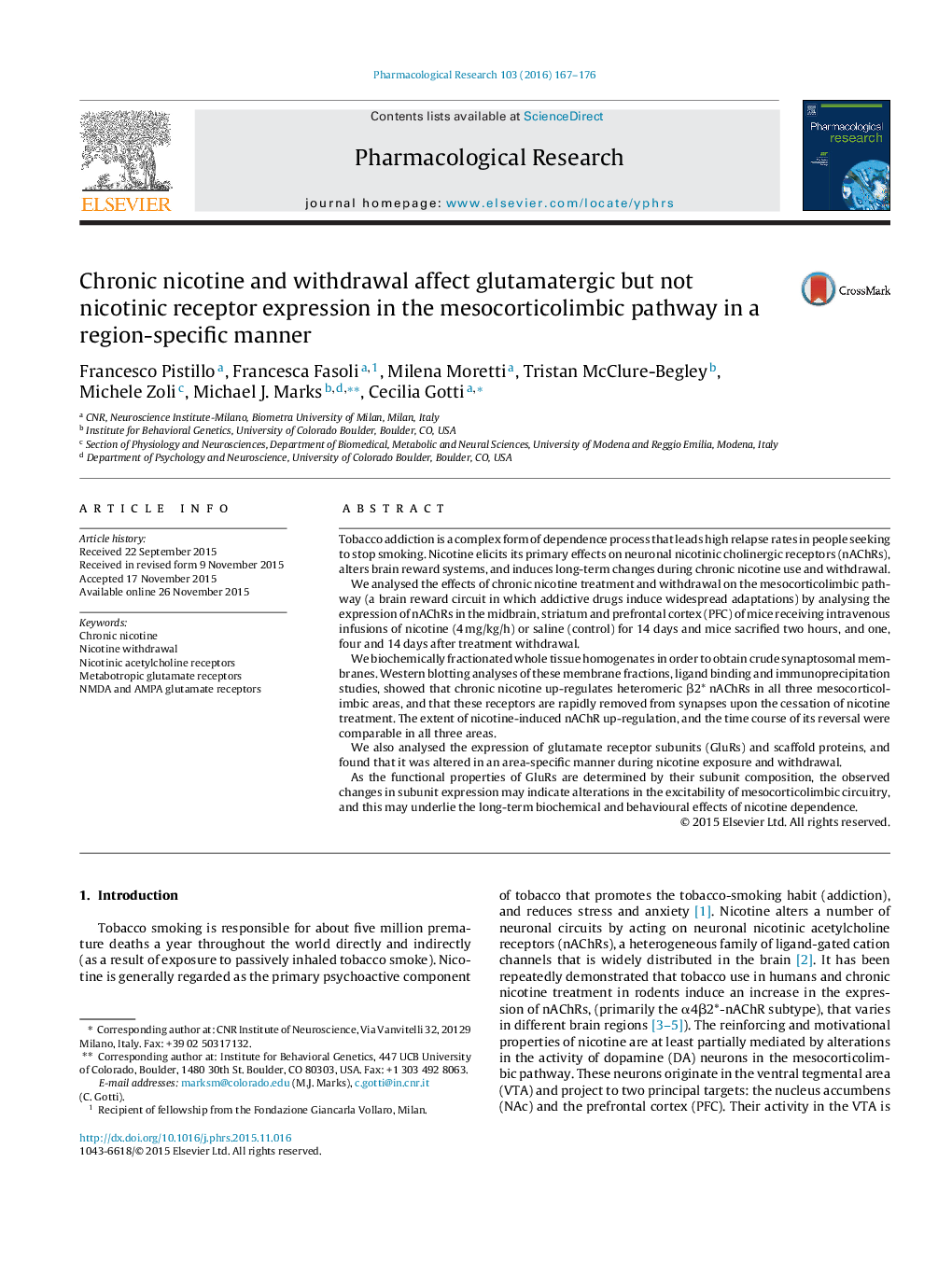| Article ID | Journal | Published Year | Pages | File Type |
|---|---|---|---|---|
| 5843037 | Pharmacological Research | 2016 | 10 Pages |
â¢Chronic nicotine up-regulates heteromeric β2-containing nicotinic receptors in the mesocorticolimbic pathway.â¢These receptors are rapidly removed from mesocorticolimbic synapses upon nicotine cessation.â¢Glutamate receptor expression in this pathway is regulated in a region-specific manner during nicotine exposure and withdrawal.
Tobacco addiction is a complex form of dependence process that leads high relapse rates in people seeking to stop smoking. Nicotine elicits its primary effects on neuronal nicotinic cholinergic receptors (nAChRs), alters brain reward systems, and induces long-term changes during chronic nicotine use and withdrawal.We analysed the effects of chronic nicotine treatment and withdrawal on the mesocorticolimbic pathway (a brain reward circuit in which addictive drugs induce widespread adaptations) by analysing the expression of nAChRs in the midbrain, striatum and prefrontal cortex (PFC) of mice receiving intravenous infusions of nicotine (4 mg/kg/h) or saline (control) for 14 days and mice sacrified two hours, and one, four and 14 days after treatment withdrawal.We biochemically fractionated whole tissue homogenates in order to obtain crude synaptosomal membranes. Western blotting analyses of these membrane fractions, ligand binding and immunoprecipitation studies, showed that chronic nicotine up-regulates heteromeric β2* nAChRs in all three mesocorticolimbic areas, and that these receptors are rapidly removed from synapses upon the cessation of nicotine treatment. The extent of nicotine-induced nAChR up-regulation, and the time course of its reversal were comparable in all three areas.We also analysed the expression of glutamate receptor subunits (GluRs) and scaffold proteins, and found that it was altered in an area-specific manner during nicotine exposure and withdrawal.As the functional properties of GluRs are determined by their subunit composition, the observed changes in subunit expression may indicate alterations in the excitability of mesocorticolimbic circuitry, and this may underlie the long-term biochemical and behavioural effects of nicotine dependence.
Graphical AbstractDownload high-res image (85KB)Download full-size image
